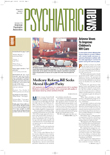New research indicates that repeated exposure to cocaine causes a change in the way genes in brain cells work, leading to altered levels of specific brain proteins that modulate levels of the neurotransmitter dopamine. The process may underlie addiction to cocaine, as well as other drugs of abuse.
The multisite study, headed by Paul Greengard, Ph.D., the Vincent Astor Professor and head of the Laboratory of Molecular and Cellular Neuroscience at the Rockefeller University, combined behavioral and biochemical methods to show that an enzyme known as cyclin-dependent kinase 5 (Cdk5) regulates the action of chronic cocaine in the brain. Greengard shared the 2000 Nobel Prize for his discovery of how dopamine exerts its actions in the nervous system. The current research appeared in the March 15 issue of Nature.
Greengard and James Bibb, Ph.D., a research associate at Rockefeller, led a team of researchers in showing that Cdk5, an enzyme present in normal brain tissue, increases in concentration with repeated exposure to cocaine in an attempt to counteract the cocaine’s stimulant effects. Cocaine had previously been shown to enhance dopamine-mediated nerve signals through blocking the reuptake of dopamine at axon terminals.
The Rockefeller team found that exposure to cocaine causes genes in the neurons to churn out more of delta-FosB, a protein that in turn triggers an increase in Cdk5. As Cdk5 increases and blocks the stimulant effects of the cocaine, more cocaine is needed to cause the “high” associated with the drug’s abuse, leading an addicted individual to seek more cocaine to achieve the same effect.
“This research provides valuable insight into the step-by-step molecular adaptations that the brain makes in response to drugs,” said Alan I. Leshner, Ph.D., director of the National Institute on Drug Abuse, which funded the research. “These adaptations result in long-term changes at the cellular level that are involved in the development of addiction.”
Charles Ouimet, Ph.D., a professor of psychology and neuroscience at the University of Florida, who was on Greengard’s team, agreed. “This study gets us one step closer to understanding the process by which addiction happens and the mechanisms you might use to tap into and interfere with the process. Ultimately, we may be able to develop pharmaceutical agents that could help treat cocaine addiction, much in the way that we use methadone to treat heroin addiction.”
The study is among the first to show the effects of chronic cocaine use on the brain’s enzymes, according to Oiumet.
“I suspect, as do others,” Oiumet concluded, “that similar mechanisms could be in place with other addictions. If we could find that out, we could help a lot of people.”
An abstract of the article, “Effects of Chronic Exposure to Cocaine are Regulated by the Neuronal Protein Cdk5,” is available on the Web at www.nature.com by searching on the title. ▪
